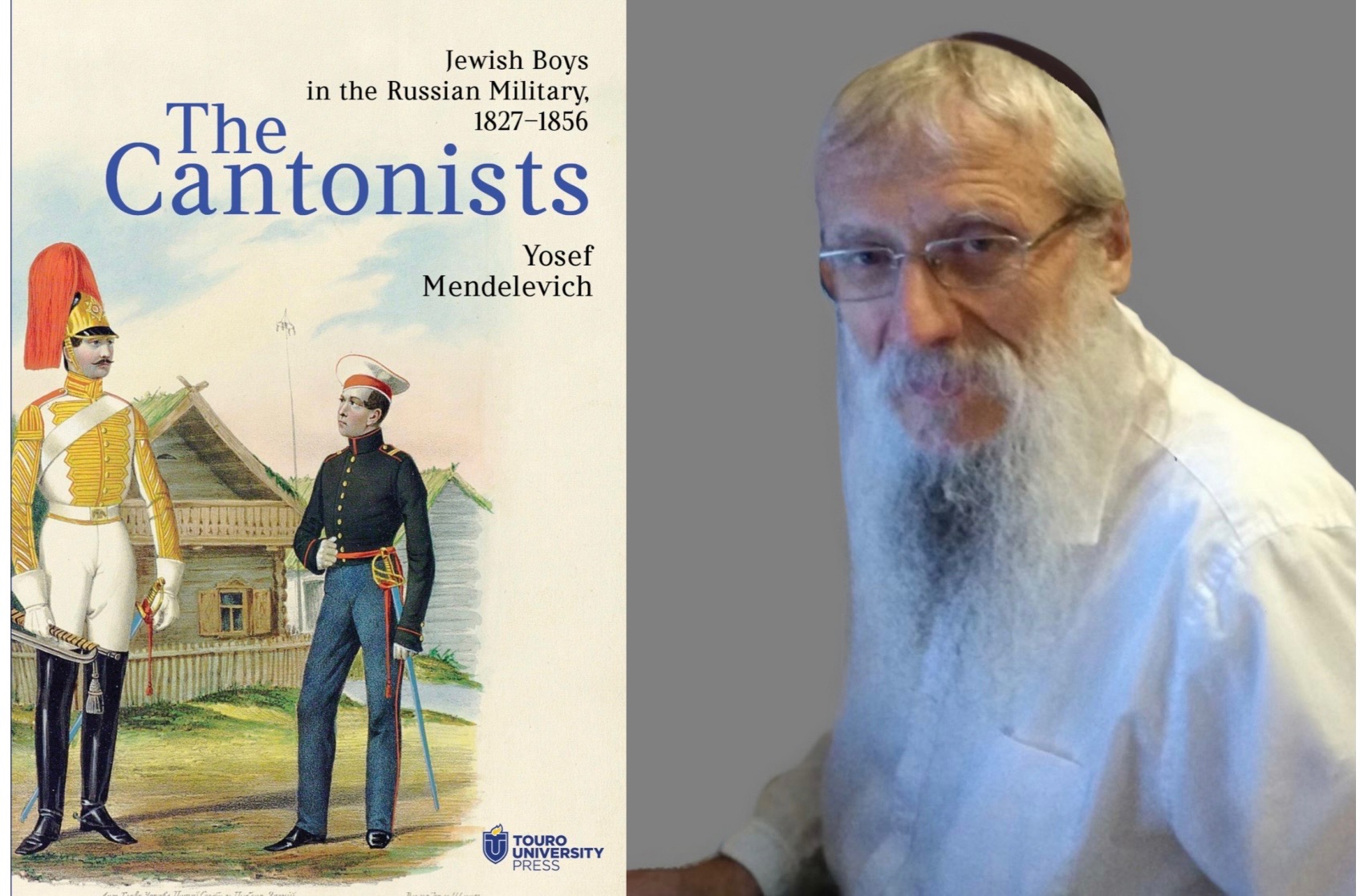A Forgotten Chapter of Jewish Resilience
Decades After Defying the Soviet Union, Rabbi Josef Mendelevich Shines a Light on the History of Forced Jewish Conscription in Russia in His New Book

Rabbi Yosef Mendelevich is best known as a Soviet refusenik and former political prisoner who was sentenced to 15 years in a labor camp for his involvement in a 1970 plot to hijack a plane and escape the USSR. Today, at 77, he is making headlines for a very different reason: the publication of his book, The Cantonists: Jewish Boys in the Russian Military, 1827–1856 by Touro University Press, being released in English for the first time.
A historical work of deep scholarly insight and emotional resonance, the book is the result of decades of research and draws on newly uncovered documents from Russian imperial archives. For Rabbi Mendelevich, the book is not just a personal achievement, it’s a way of reclaiming and illuminating a forgotten chapter of Jewish resilience.
Once a Prisoner, Now an Academic
In the late 1990s, Rabbi Mendelevich, already a symbol of Jewish resistance, found himself working as head of the Russian department at the Touro College Israel campus in Jerusalem. He had gotten his job despite never completing his university education in the Soviet Union, having been expelled from his university for applying to immigrate to Israel. Touro, he said, offered him a second chance.
“Professor Carmi Horowitz, the dean and rector of the Touro Graduate School of Jewish Studies in Jerusalem at the time, encouraged me to complete my studies, so I decided to pursue a master’s in Jewish history,” he said. “For my thesis, I chose to research the conscription of Jewish boys into the Russian army under Tsar Nicholas I, a topic that had recently become more accessible through newly acquired Russian archival materials.”
What began as a master’s thesis quickly grew into a massive scholarly work—approximately 300 pages in total. “People told me it’s not a master’s thesis, it’s a doctorate,” Rabbi Mendelevich said with a laugh.
A Humanistic Lens on a Brutal History
The new book explores the policy initiated by Tsar Nicholas I in 1827, which forcibly conscripted Jewish boys as young as 12 into military service for terms lasting up to 25 years, with a stated goal of assimilating Jews into Russian society.
But Rabbi Mendelevich doesn’t approach the topic solely through statistics or cold historical analysis. “I consider my book a humanistic study,” he said. “It’s not just numbers. I wanted to understand the mentality of the people who made these decisions, and the people who resisted them.”
Among the most striking discoveries: While the policy was pushed by the Tsar, many of his own ministers opposed it. “They were educated men, many of them with European degrees. And yet, they followed orders they believed were inhumane,” Rabbi Mendelevich said. “The Tsar overruled them, directly issuing decrees that bypassed the ministerial process.”
Resistance and Resilience
The book also chronicles the surprising and often inspiring reactions of the Jewish communities affected by the decree. “There were great efforts to prevent the conscription,” he said. “Jews reached out to Queen Victoria of England, and she appealed to her cousin, the Russian Tsar. They went to the Rothschilds, to Moses Montefiore, trying to apply pressure.”
Within Russia itself, the forced conscripts—referred to as Cantonists—showed extraordinary spiritual strength. “Of the 60,000 Jewish boys taken, 75 percent refused baptism, despite brutal punishments,” Rabbi Mendelevich said. “That’s a victory. That shows how deep their Jewish identity was.”
He also uncovered moving stories of individual heroism: Russian peasants who helped boys escape; Jewish soldiers who smuggled money to them; even a Russian priest who told one boy, according to Rabbi Mendelevich, “You have to follow Avraham, Yitzchak and Yaakov.”
Finishing What He Started
The English publication of the book by Touro University Press marks a full-circle moment for Rabbi Mendelevich. What began as a research project in the halls of the Touro Israel campus will now be available to a global audience. “For the first time, English readers will have access to this original research,” he said. “It’s based on documents few others could read or interpret. I had the privilege of understanding not just the language, but the mindset of those who wrote them.”
Despite his revolutionary past, Rabbi Mendelevich says he is not trying to push a particular message. “I’m not a Russian commissar,” he said. “I don’t tell people what to think. But I want the book to raise questions. That’s what real learning is about.”
He hopes the work will challenge assumptions, inspire further inquiry, and deepen readers’ understanding of both Jewish endurance and Russian imperial policy. It’s not just a book for academics, he said. “It’s for anyone who cares about Jewish history, identity, and survival.” The Cantonists can be purchased on Amazon or academicstudiespress.com.
/prod01/channel_38/media/redesign/assets/images/background-images/locations-background.jpg)
